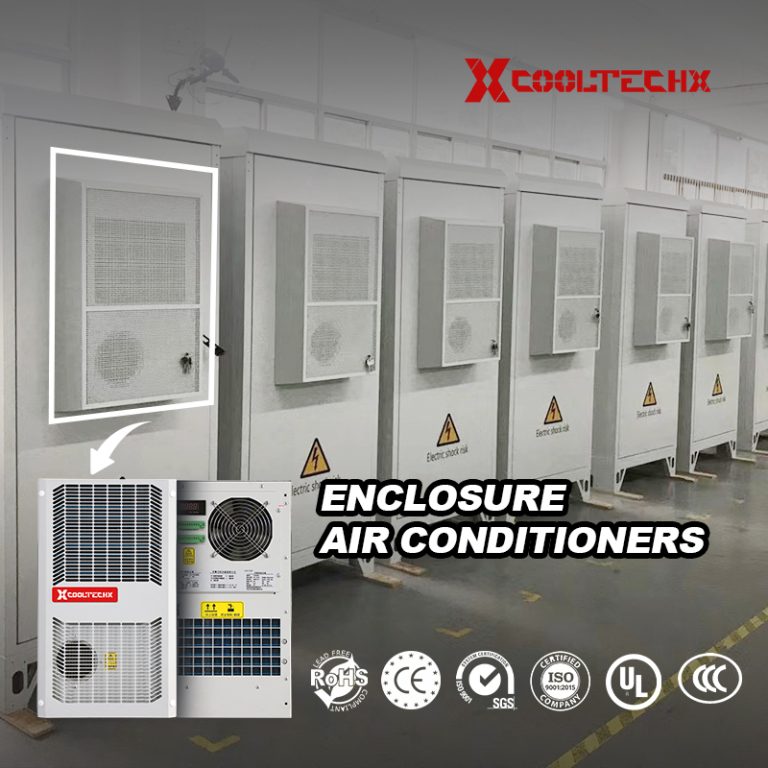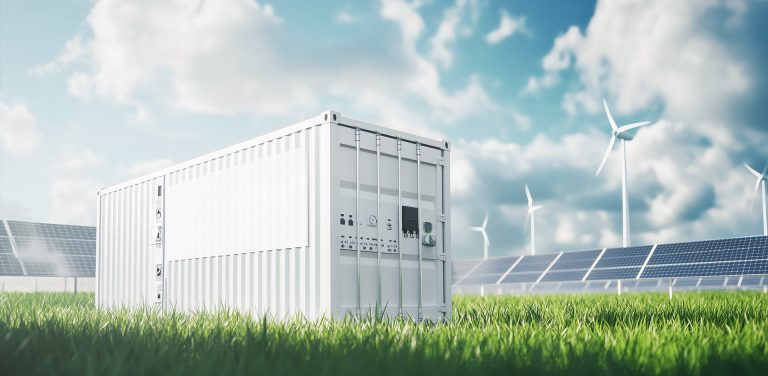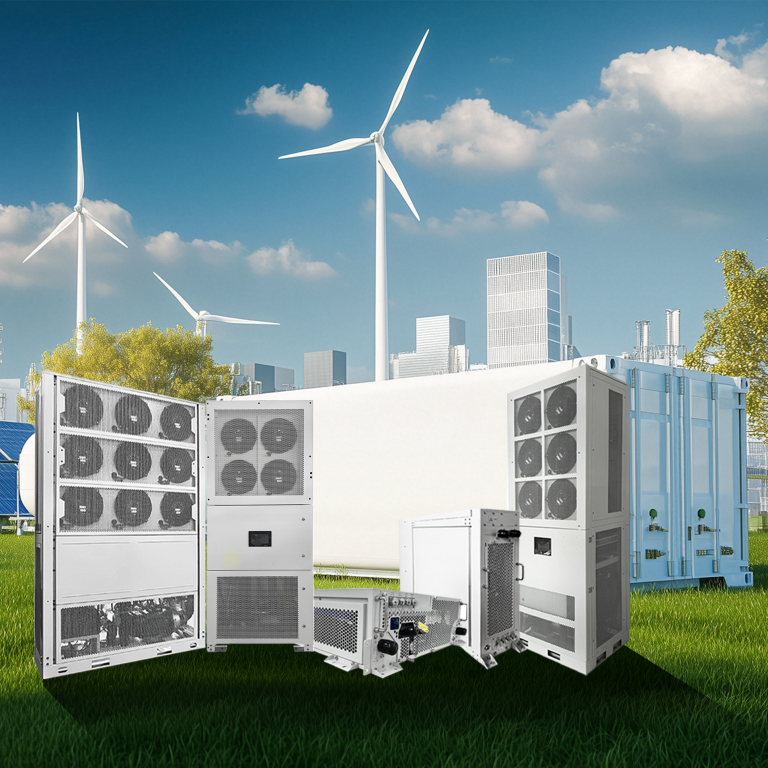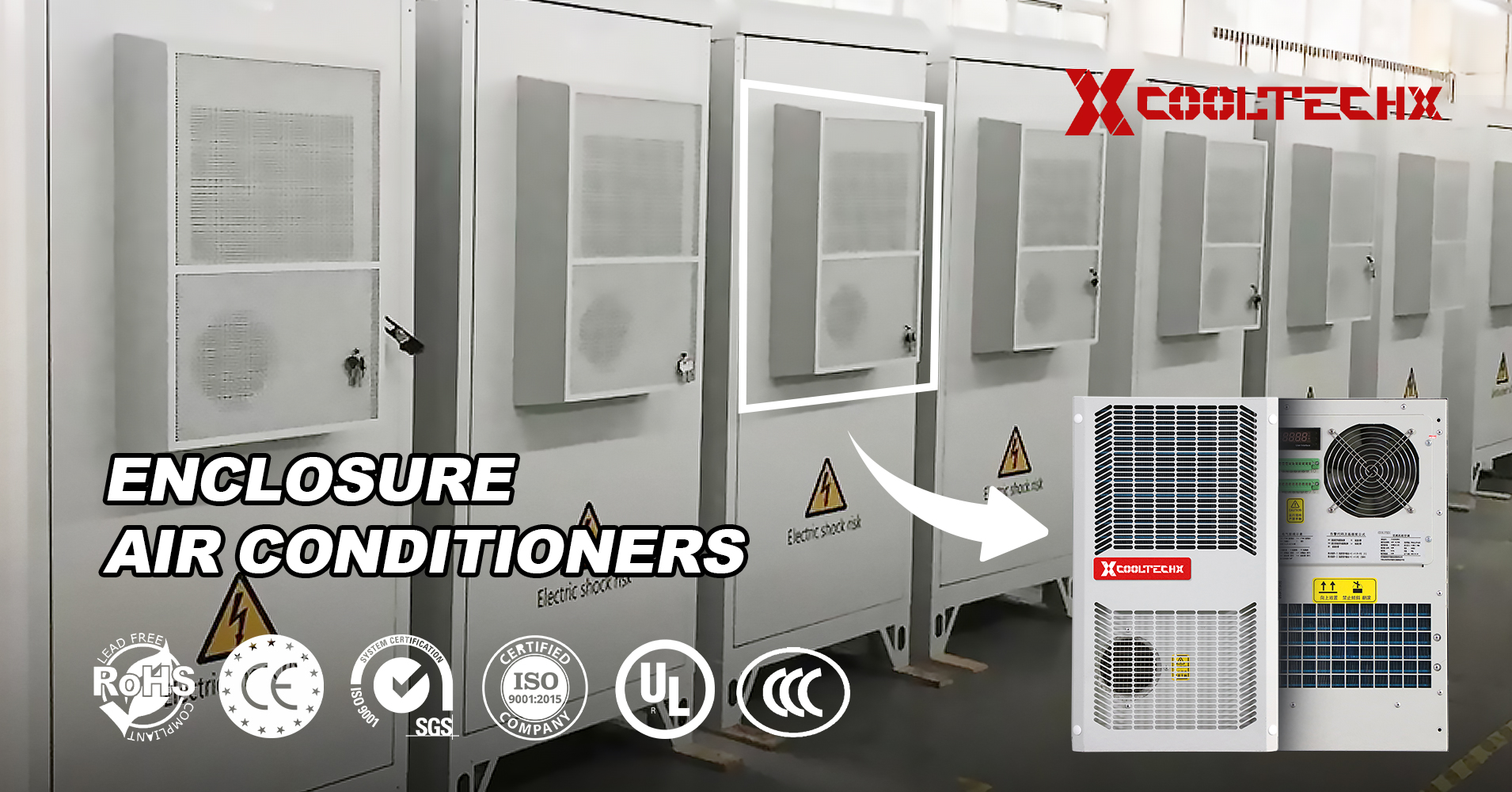
Image Source: Cooltechx
Enclosure air conditioners are specialized cooling units that help you regulate temperature and humidity inside electrical enclosures. These systems protect sensitive equipment from overheating and exposure to dust, moisture, or other contaminants. By maintaining a stable environment, they ensure your equipment operates efficiently and reliably. This is especially important in industrial settings where even minor disruptions can lead to costly downtime or equipment failure. With enclosure air conditioners, you can safeguard your operations and extend the lifespan of your critical machinery.
Key Takeaways
- Enclosure air conditioners keep equipment cool and free from dirt.
- Picking the right size and type is important for good cooling.
- Cleaning filters and handling water buildup helps them last longer.
- New features like remote checks make them work better and safer.
- Buying good air conditioners lowers repair costs and saves time.
What Are Enclosure Air Conditioners?
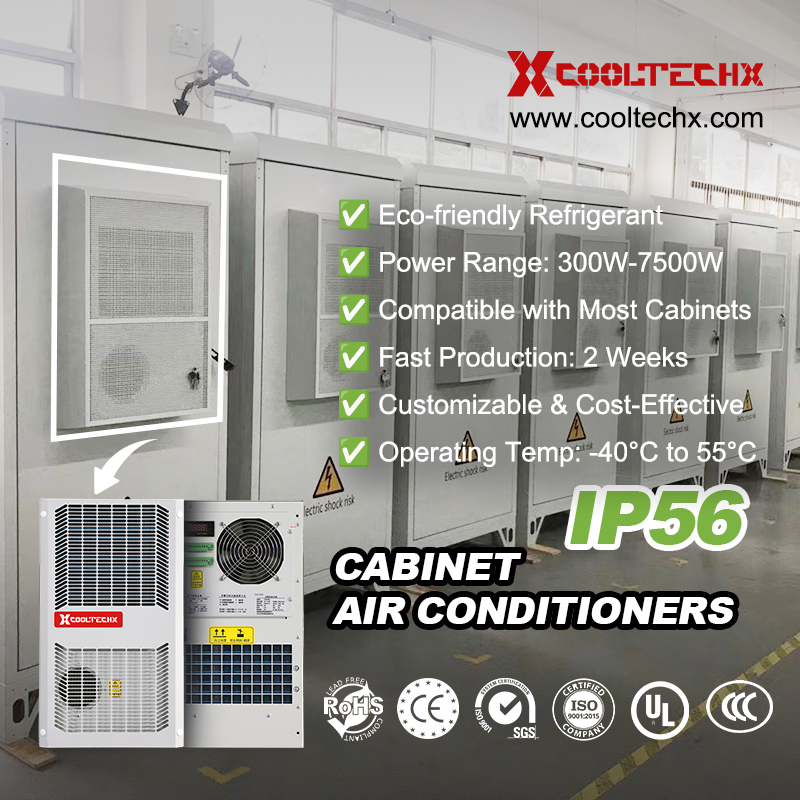
Definition and Purpose
Enclosure air conditioners are cooling systems specifically designed to maintain stable environmental conditions inside electrical enclosures. These units regulate temperature and control humidity to protect sensitive equipment from overheating, moisture, and contaminants. They are essential for ensuring that your machinery operates efficiently and reliably, even in challenging environments.
To function effectively, enclosure air conditioners must meet specific technical requirements:
- Sealing: Prevents dust and debris from entering.
- Wash Down Resistance: Withstands water sprays in food processing areas.
- Chemical Resistance: Protects against corrosive cleaning agents.
- Hygiene: Promotes cleanliness with smooth finishes and corrosion-resistant materials.
- Condensate Control: Manages moisture to avoid hazards.
These features make enclosure air conditioners indispensable for protecting your equipment and maintaining operational efficiency.
Why They Are Essential in Industrial Settings
In industrial environments, maintaining stable conditions is critical for sensitive electronic equipment. Overheating or exposure to contaminants can lead to costly downtime and equipment failure. Enclosure air conditioners prevent these issues by creating a controlled environment.
Industries such as telecommunications, manufacturing, energy, IT, and automotive rely heavily on these systems. For example, data centers use enclosure air conditioners to prevent overheating, which could disrupt operations. Similarly, manufacturing facilities depend on them to ensure smooth automation processes. As industrial automation and regulatory requirements increase, the demand for these air conditioners continues to grow.
Types of Enclosure Air Conditioners
Enclosure air conditioners come in various types to suit different needs. Here are some common categories:
- By Product Type: Fixed and portable units.
- By Cooling Capacity: Low capacity (up to 5,000 BTU), medium capacity (5,001 to 15,000 BTU), and high capacity (above 15,000 BTU).
- By Technology: Conventional air conditioning and inverter-based systems.
- By Application: Industrial, commercial, and outdoor environments.
For example, thermoelectric coolers are compact and reliable, making them ideal for specific applications. However, compressor-based systems are more energy-efficient and widely used in larger setups. Selecting the right type depends on your specific industrial requirements.
How Do Enclosure Air Conditioners Work?
Key Components
Compressor
The compressor is the heart of enclosure air conditioners. It pressurizes the refrigerant, converting it into a high-temperature, high-pressure gas. This process allows the refrigerant to release heat efficiently as it moves through the system. Compressors play a vital role in maintaining consistent cooling, ensuring your equipment stays within safe operating temperatures.
Evaporator and Condenser Coils
The evaporator and condenser coils work together to transfer heat. The evaporator coil absorbs heat from inside the enclosure, cooling the air. The condenser coil then releases this heat outside the enclosure. This heat exchange process is crucial for regulating temperature and preventing overheating.
Fans and Filters
Fans circulate air across the coils, enhancing heat transfer. Filters, on the other hand, trap dust and debris, ensuring clean airflow. Together, these components improve cooling efficiency and protect sensitive equipment from contaminants.
Cooling Mechanisms
Closed-Loop Cooling
Closed-loop cooling systems isolate the internal air from the external environment. This design prevents contaminants like dust and moisture from entering the enclosure. It’s ideal for environments where cleanliness and equipment protection are priorities.
Heat Exchange Process
The heat exchange process involves transferring heat from the enclosure to the external environment. This is achieved through conduction, convection, or radiation. Advanced systems, such as those with variable speed compressors, optimize this process for better energy efficiency and cost savings.
| Cooling Mechanism | Effectiveness | Advantages | Applications |
|---|---|---|---|
| Thermoelectric AC | 155-390 BTU/hr | No refrigerants, compact | Enclosures with no protrusions |
| Heat Exchangers | Long-term efficiency | Cost-effective over time | Various enclosure types |
| Filtered Fans | Low upfront cost | Simple installation | Basic cooling needs |
Managing Condensate and Humidity
Condensate management is essential for preventing moisture-related damage. Most enclosure air conditioners include a drain pan to collect condensation. Advanced systems use condensate evaporators, which enhance efficiency by evaporating the collected moisture. Proper humidity control not only protects your equipment but also improves the overall performance of the cooling system.
Tip: Regular maintenance of condensate systems ensures optimal performance and prevents water buildup.
Applications of Enclosure Air Conditioners in Industrial Settings
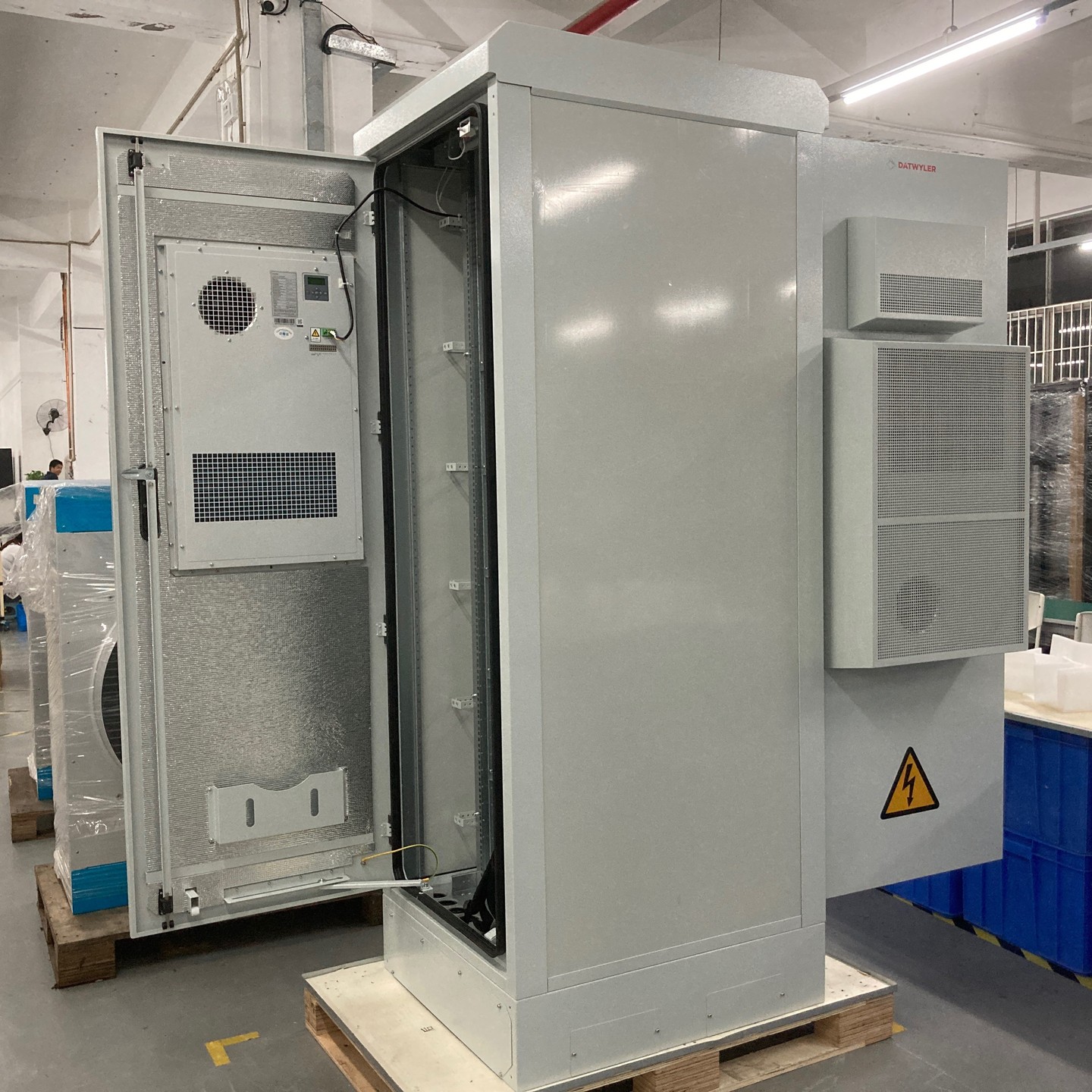
Manufacturing and Automation
In manufacturing and automation, maintaining stable environmental conditions is critical. Sensitive electronic equipment, such as programmable logic controllers (PLCs) and robotics, generates significant heat during operation. Without proper cooling, this heat can lead to equipment failure and costly downtime. Enclosure air conditioners provide precise temperature control, ensuring your machinery operates efficiently.
Advanced cooling technologies also contribute to energy efficiency. For instance, modern systems can reduce energy costs by up to 30%. Facilities adopting eco-friendly refrigerants further benefit from a 50% reduction in greenhouse gas emissions. These features make enclosure air conditioners an essential part of sustainable and efficient manufacturing processes.
| Evidence Type | Description |
|---|---|
| Temperature Control | Prevents overheating, ensuring smooth operations and avoiding disruptions. |
| Energy Efficiency | Reduces energy consumption, lowering operational costs. |
| Eco-friendly Refrigerants | Supports sustainability goals by minimizing environmental impact. |
Data Centers and IT Infrastructure
Data centers house servers and networking equipment that require constant cooling to function reliably. Overheating in these environments can result in data loss or system crashes. Enclosure air conditioners help you maintain optimal temperatures, protecting your IT infrastructure from damage.
The adoption of IoT-enabled cooling systems has revolutionized data center management. These smart-systems optimize energy usage and enable predictive maintenance, reducing the risk of unexpected failures. By investing in enclosure air conditioners, you can enhance the reliability and longevity of your IT equipment while achieving significant energy savings.
Note: Regulatory compliance is another key factor. Energy-efficient cooling solutions align with stricter environmental standards, making them a smart choice for modern data centers.
Food and Beverage Processing
In food and beverage processing, hygiene and temperature control are paramount. Electrical enclosures in these facilities often face exposure to water sprays, cleaning agents, and fluctuating temperatures. Enclosure air conditioners protect your equipment by maintaining a sealed environment and regulating humidity levels.
These systems also ensure compliance with industry hygiene standards. Smooth finishes and corrosion-resistant materials prevent contamination, while condensate management systems handle moisture effectively. By using enclosure air conditioners, you can safeguard your equipment and maintain the quality of your products.
Tip: Regular maintenance of cooling systems in food processing environments ensures consistent performance and extends equipment lifespan.
Outdoor and Harsh Environments
Outdoor and harsh environments pose unique challenges for maintaining stable conditions in electrical enclosures. Dust, humidity, and extreme temperatures can damage sensitive equipment. Enclosure air conditioners are designed to withstand these conditions, ensuring reliable performance and protecting your equipment.
Specialized features make these systems ideal for demanding environments. For example, ambient packages and corrosion-resistant coatings enhance durability. These accessories allow the air conditioners to operate effectively in areas exposed to oil, salt, or other corrosive substances. By using these systems, you can extend the lifespan of your equipment and reduce the risk of failure.
The table below highlights the comparative performance of enclosure air conditioners in harsh environments:
| Feature | Description |
|---|---|
| Environmental Tolerance | Standard air conditioners may not withstand dust, humidity, and oil in industrial settings. |
| Specialized Accessories | Options like ambient packages and corrosion protection enhance durability and performance. |
| Impact on Equipment Lifespan | Efficient cooling solutions can significantly extend the lifespan of sensitive electronic equipment. |
When you invest in enclosure air conditioners for outdoor or harsh environments, you ensure your operations remain uninterrupted. These systems provide a cost-effective solution for protecting your valuable equipment.
Petrochemical and Water Treatment Facilities
Petrochemical plants and water treatment facilities rely on precise temperature control to maintain operational efficiency. Equipment like pumps, blowers, and motors generate significant heat during operation. Without proper cooling, this heat can lead to equipment failure and costly downtime. Enclosure air conditioners prevent overheating, ensuring your systems run smoothly.
These cooling systems also protect electrical components from environmental hazards. For example, they shield variable frequency drives (VFDs) and programmable logic controllers (PLCs) from damage caused by heat or moisture. By reducing the risk of failure, they enhance the reliability of your operations.
Key benefits of enclosure air conditioners in these facilities include:
- Maintaining operational efficiency by preventing overheating of mechanical and electrical equipment.
- Protecting valuable electrical equipment from failure, ensuring continuous operation.
- Reducing maintenance costs associated with equipment failure.
- Extending the lifespan of critical components like VFDs and PLCs.
By using enclosure air conditioners, you can improve the reliability of your systems and lower maintenance expenses. These systems are essential for ensuring the long-term success of petrochemical and water treatment operations.
Features and Considerations for Selecting Enclosure Air Conditioners
Durability and Material Quality
When choosing enclosure air conditioners, durability should be your top priority. Industrial environments often expose equipment to harsh conditions like dust, moisture, and extreme temperatures. High-quality materials, such as stainless steel or corrosion-resistant coatings, ensure the unit withstands these challenges. A durable air conditioner lasts longer and reduces maintenance costs. Look for units with a robust design that can handle vibrations or impacts common in industrial settings.
Tip: Always check for certifications like NEMA or IP ratings. These indicate the unit’s ability to resist environmental factors like water and dust.
Cooling Capacity and Efficiency
Cooling capacity determines how effectively the air conditioner can regulate temperature. You should select a unit with the right BTU (British Thermal Unit) rating for your enclosure size. Undersized units may fail to cool properly, while oversized ones waste energy. Efficient systems save energy and lower operational costs. Modern units often feature inverter technology, which adjusts cooling output based on demand. This not only improves efficiency but also extends the lifespan of the system.
Note: Calculate your enclosure’s heat load to determine the appropriate cooling capacity. This ensures optimal performance.
Condensate Management Systems
Condensate forms when air conditioners remove humidity from the air. Without proper management, this moisture can damage your equipment. Advanced systems include condensate evaporators, which eliminate collected water by turning it into vapor. Some units also feature drain pans with overflow protection. These features prevent water buildup and ensure smooth operation.
Regular maintenance of the condensate system is essential. Clean the drain lines and pans to avoid clogs or leaks. This keeps your air conditioner running efficiently and protects your equipment from moisture-related issues.
Remote Monitoring and Control
Modern enclosure air conditioners often include remote monitoring and control features. These advanced systems allow you to oversee and manage cooling operations from a distance. This capability is especially useful in industrial settings where equipment operates in multiple locations or hard-to-reach areas.
With remote monitoring, you can track key performance metrics like temperature, humidity, and energy consumption in real time. Alerts notify you of potential issues, such as overheating or system malfunctions, before they escalate. This proactive approach helps you prevent costly downtime and equipment damage.
Control features let you adjust settings remotely. For example, you can modify temperature setpoints or fan speeds without being physically present. This flexibility improves efficiency and reduces the need for on-site interventions. Many systems also integrate with IoT platforms, enabling predictive maintenance. By analyzing data trends, you can schedule maintenance before problems occur, saving time and resources.
Tip: Choose a system with user-friendly software and mobile app compatibility. This ensures you can access critical information anytime, anywhere.
Compliance with Industry Standards
When selecting enclosure air conditioners, compliance with industry standards is crucial. These standards ensure the unit meets safety, performance, and environmental requirements. For example, NEMA and IP ratings indicate protection against dust, water, and other environmental factors. A higher rating means better protection for your equipment.
Energy efficiency standards, such as those set by the Department of Energy (DOE), help you reduce energy consumption. Compliance with these standards not only lowers operational costs but also supports sustainability goals. Additionally, certifications like UL and CE demonstrate that the unit meets international safety and quality benchmarks.
Note: Always verify the certifications of an air conditioner before purchasing. This guarantees the unit is suitable for your specific application and complies with local regulations.
By prioritizing compliance, you ensure your enclosure air conditioners perform reliably while adhering to safety and environmental guidelines.
Enclosure air conditioners play a vital role in protecting sensitive equipment and ensuring smooth industrial operations. They prevent overheating, condensation, and corrosion, which can lead to costly downtime. With the rise of automation and digitization, reliable thermal management has become more critical than ever.
- These systems enhance equipment performance and efficiency.
- Proper cooling solutions reduce energy costs and safeguard electronic components.
- The growing demand for effective thermal management highlights their importance.
Tip: Consult experts to identify the best air conditioner for your needs. Tailored solutions can maximize efficiency and protect your investment.
FAQ
What is the lifespan of an enclosure air conditioner?
The lifespan depends on usage and maintenance. With proper care, most units last 10–15 years. Regular cleaning of filters and coils, along with timely inspections, helps extend their life. Always follow the manufacturer’s maintenance guidelines.
How do I determine the right cooling capacity for my enclosure?
Calculate the heat load of your enclosure. Consider factors like equipment heat output, ambient temperature, and enclosure size. Use this information to select a unit with the appropriate BTU rating. Many manufacturers provide online calculators for assistance.
Can enclosure air conditioners operate in extreme temperatures?
Yes, many models are designed for extreme conditions. Look for units with features like ambient packages or corrosion-resistant coatings. These ensure reliable performance in environments with high heat, cold, or humidity.
How often should I clean the filters?
Clean the filters every 1–3 months, depending on the environment. Dusty or dirty areas may require more frequent cleaning. Regular maintenance ensures optimal airflow and prevents system strain.
Are enclosure air conditioners energy-efficient?
Modern units often include energy-saving features like inverter technology. These systems adjust cooling output based on demand, reducing energy consumption. Choosing the right size and maintaining the unit also improves efficiency.
Tip: Consult your manufacturer’s manual for specific maintenance schedules and energy-saving tips.


